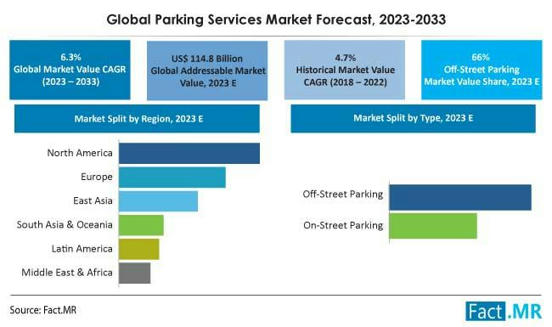Introduction
In the age of rapid urbanization, parking has become a significant challenge in cities worldwide. Traditional parking methods often lead to congestion, high emissions, and frustration for drivers. To address these issues, innovative solutions that incorporate artificial intelligence (AI) are being developed. This article explores a case study of an intelligent parking management system that utilizes AI to optimize and streamline parking operations.
The Problem
City centers are plagued by traffic congestion partly caused by drivers circling around looking for parking spaces. The lack of efficient parking management systems leads to:
- Increased traffic congestion: Drivers searching for parking contribute to city traffic, causing delays and inefficiency.
- Higher pollution levels: More cars idling and moving slowly increase carbon emissions.
- Wasted time and fuel: Drivers spend many minutes per trip looking for parking, wasting fuel and time.
- Frustration and reduced economic activity: Difficulty in finding parking can deter people from visiting certain areas, affecting local businesses.
The Solution: Intelligent Parking Management
An AI-driven parking management system was developed to tackle these challenges head-on. The core components of the solution include:
1. Real-Time Data Collection
- Sensors and cameras: Installed in parking lots and streets to monitor space availability.
- Data integration: Information from various sources is integrated into a central system for real-time updates.
2. AI Algorithms
- Predictive analytics: AI uses historical data to predict parking patterns and suggest optimal parking allocation.
- Dynamic pricing: Prices for parking spaces are adjusted in real-time based on demand, helping to manage the flow of cars.
3. User-Friendly Application
- Mobile app: Allows users to view available parking spots in real time.
- Advanced booking options: Users can reserve parking spaces in advance, reducing the need to search on arrival.
- Payment integration: Enables drivers to pay for parking through the app, streamlining the process.
Implementation
The implementation of the intelligent parking solution involved several critical steps:
Planning and Partnership
- Stakeholder engagement: Collaboration with city planners, local businesses, and technology providers.
- Infrastructure assessment: Evaluating existing parking infrastructure to integrate new technologies.
Technology Deployment
- Installation of sensors and cameras: Strategically placed to cover maximum areas.
- Software development: Building the AI algorithms and user interface for the app.
Public Launch and Education
- Public awareness campaigns: Educating the public on how to use the new system.
- Feedback loops: Establishing channels for users to provide feedback for continuous improvement.
Results and Impact
Post-implementation, the intelligent parking management system demonstrated significant positive impacts:
- Reduced search time: Average search time for parking decreased by up to 70%.
- Increased parking turnover: More efficient use of parking spaces increased availability.
- Revenue generation: Dynamic pricing led to increased revenue from parking fees.
- Environmental benefits: Reduced driving time meant lower emissions and less pollution.
Lessons Learned
From this case study, several key lessons emerged:
- User adoption is critical: Continuous user engagement and simplification of the technology are vital for success.
- Flexibility in implementation: The system should be adaptable to different urban environments and user needs.
- Data privacy concerns: It is essential to address any data privacy issues with transparent policies.
Conclusion
The case study of the intelligent parking solution demonstrates the transformative potential of AI in urban management. By reducing the hassle associated with parking, AI-driven systems not only improve the quality of urban life but also contribute to environmental sustainability. This project serves as a model for other cities facing similar challenges, proving that with the right technology and approach, significant improvements in urban transportation are achievable.




